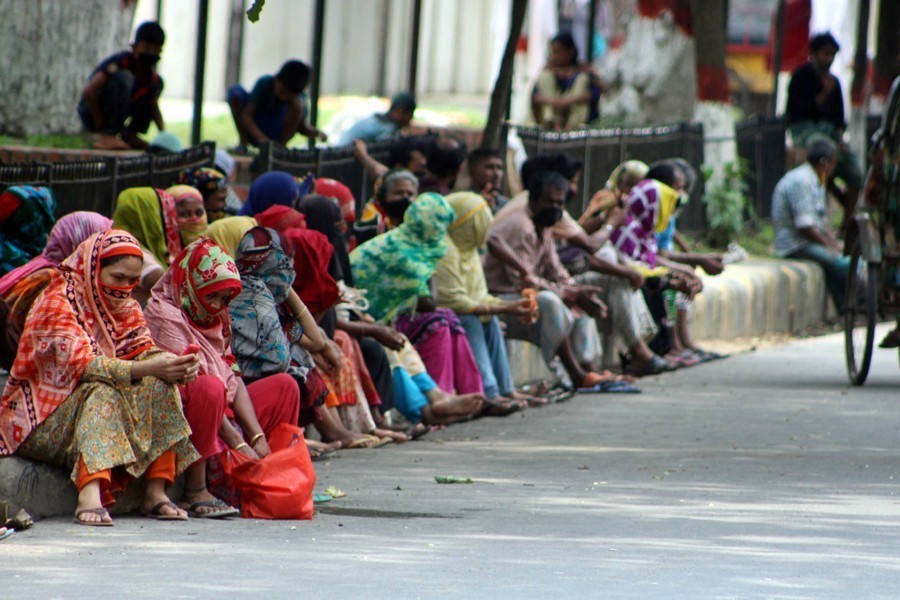The World Bank on Friday approved $300 million to help Bangladesh strengthen its urban local government institutions to respond to the Covid-19 pandemic and improve preparedness to future shocks benefitting about 40 million urban residents.
The Local Government Covid-19 Response and Recovery Project will support urban local government institutions to effectively respond to and recover from the pandemic, according to a WB news release.
It says 329 municipalities and 10 city corporations will have the provision to receive funds bi-annually from the project to improve critical urban services delivery of facilities and infrastructure, local economic recovery, and preparedness to climate impacts, disaster and future disease outbreak.
The project will support labour intensive public works to restore the livelihoods of poor and vulnerable people, mostly working in the informal sector who were most affected by the COVID 19 restrictions and lockdowns.
“The Covid-19 pandemic had hit hard the poor people in urban areas, caused income losses and disrupted basic service delivery. But the city corporations and the municipalities can play a critical role in helping the urban poor recover from the pandemic as well as get cities prepared to handle future shocks,” said WB Country Director Mercy Tembon.
“This project will help the cities and towns to build back better as they recover from the pandemic and prepare for future shocks, including climate change, disasters, and disease outbreaks.”
Aided by the funding from the project, the eligible urban local bodies will install community hand-washing stations and toilets; and improve sanitization in municipality-owned or operated markets, burial grounds, and public offices, the release pointed out.
It added that the project will help the residents have better access to municipality-operated health clinics and facilitate vaccine registrations for disadvantaged people, and conduct awareness programs on COVID-19 protocols, vaccines, and climate risks.
It is designed to create 1.5 million days of temporary work as well as employment for 10,000 women under the public work scheme. The project will also help the local government institutions to improve preparedness to climate impacts, disaster, and future disease outbreak, the WB said.
“The Covid 19 pandemic has pushed the number of urban poor up to 27 million,” said Shenhua Wang, WB Senior Urban Development Specialist and Task Team Leader for the Project. “The project will carry out labor-intensive public works and operations and maintenance schemes that in one hand will ensure water supply and sanitation, drainage, and other critical services reach low-income areas, slums, and areas exposed to high disease outbreak and disaster risks and in other hand create jobs for the poor urban people.”
The project will help strengthen local institutions through training, technical support, and set up a web-based platform for better coordination and exchange of information during emergencies. It will be implemented in in all eight divisions: Barishal, Chattogram, Dhaka, Khulna, Mymensingh, Rajshahi, Rangpur, and Sylhet.
The credit is from the World Bank’s International Development Association (IDA), which provides concessional financing, has a 30-year term, including a five-year grace period. Bangladesh currently has the largest ongoing IDA program totaling over $14.15 billion. The World Bank was among the first development partners to support Bangladesh and has committed $35 billion in grants, interest-free, and concessional credits to the country since its Independence.


